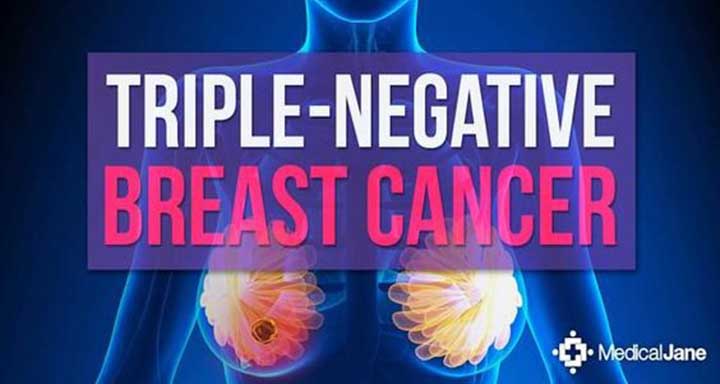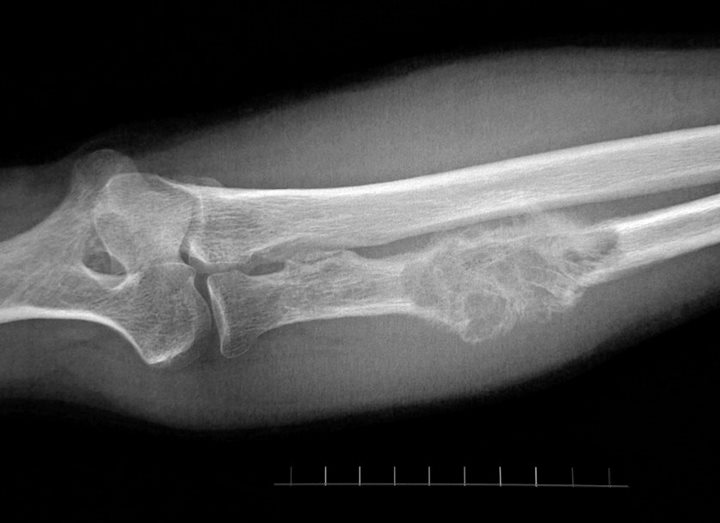Triple negative breast cancer, commonly referred to as TNBC, is an aggressive form of breast cancer unique in that it doesn’t utilize progesterone, estrogen, and HER2. While all types of breast cancer are frightening, triple negative breast cancer can be even more terrifying due to its resistance to the standard breast cancer treatment. That being said, it is by no means an automatic death sentence for those who have been diagnosed. Effective breast cancer treatments do exist that can stop triple negative breast cancer from growing. Here we hope to examine TNBC and answer any questions one may have.
Triple Negative Breast Cancer Causes
There is no particular reason for triple negative breast cancer to occur. Not all cases of breast cancer are TNBC. In fact, the number of women with triple-negative breast cancer is a small fraction of the total number of people living with breast cancer.
Age itself is one of the leading causes of breast cancer. As women continue to grow older, chances of getting breast cancer increase along with it. Race is also thought to be another factor behind triple negative breast cancer. African-American women have a higher chance of getting TNBC than women of other races. Triple negative breast cancer is also speculated to be caused by genetic or hereditary factors. If anyone in your family has been a victim of this dreaded disease, chances increase that you may also fall victim due to transfigured or mutated genes. Patients who have triple negative breast cancer have an abnormal mutation in the BRCA1 breast cancer gene.

Triple Negative Breast Cancer Symptoms and Signs
Everyone should be aware of breast cancer symptoms. Triple negative breast cancer symptoms are similar to those of other types of cancer. They include a mass or lump in the breast, chest pain, redness, and a nipple that produces a discharge or turns inwards. A common mistake many women make when self-inspecting is only concentrating on finding a lump in their breasts instead of monitoring the many other symptoms.
Aside from typical breast cancer symptoms, other more hidden signs may exist that can be used to detect TNBC. For instance, oncologists can determine whether the cancer cells have receptors for progesterone, HER2, and estrogen. If these are present, triple negative breast cancer may be as well. If your breast cancer is spreading and recurring after treatments, chances are TNBC may be the cause. Another symptom of triple negative breast cancer is basal-like breast cancer cells. Always go for regular screenings to be on the lookout for breast cancer symptoms.

TNBC Diagnosis
The only way to know if you have triple negative breast cancer is by visiting your oncologist. A biopsy can confirm the presence of this life-threatening disease where oncologists take a minuscule sample of the tumor tissue to examine to ascertain if the cancer cells are healthy or base-like. Oncologists also carry out other tests to reveal to you which type of cancer you are suffering from if it’s not TNBC. For instance, if your cancer cells test negative for HER2, progesterone, and estrogen triple negative breast cancer is likely the result. It may take several weeks for patients to get biopsy results. Apart from diagnosing triple negative breast cancer, oncologists will provide extra information about the stage of your cancer.
Questions For Your Doctor
Once your oncologist has established that you do have triple negative breast cancer, be prepared to ask about a few core issues. Most triple negative breast cancer patients are afraid to ask questions. It is very understandable, particularly if you are receiving this news when you least expect it. You should ask your doctor which medication they most recommend to battle TNBC. Ask what stage your cancer is at and if it has spread to the lymph nodes or different susceptible parts of the body.
Find out more about treatment combinations your doctor intends to use. In some cases, you will have to have chemotherapy either before or after surgery. Be sure to ask what type of surgery is ideal and if you will undergo other cancer treatments such as radiation. These questions are critical. Without asking you will not discover more, helping to reduce your chances of survival.
Triple Negative Breast Cancer Treatment
There is not a specific triple negative breast cancer treatment. Oncologists are currently using a combination of three treatment options to fight the disease. These options include surgery, chemotherapy, and radiation. The kind of surgery depends on things like whether you have had cancer before, whether you have several tumors or a tumor in the nipple and many more considerations. A mastectomy may be done to remove the whole breast while a lumpectomy could be performed to remove the tumor and surrounding tissues.
Radiation like chemotherapy destroys cancer cells. When detected early enough, TNBC responds better to chemotherapy than other forms of breast cancer. After you complete breast cancer treatment, visit your doctor every three to six months for the following three years to ensure it does not return. After that, visit every six to twelve months for the next four years and then once annually after that.
Getting Support
Victims and survivors of TNBC know the pain and suffering you are going through better than anyone else. Health experts advise getting in touch with groups like the American Cancer Society and the Triple Negative Breast Cancer Foundation. Their support groups will provide you with the chance to interact with other patients. Here you can ask the kind of questions one may be afraid to ask others. If possible, meet patients and survivors of triple negative breast cancer in person. It creates a bond and can give confidence when fighting the disease. Finally, raise awareness among those around you. Make everyone aware of this illness so they may be able to offer the help and support that you need.
Featured Image Source: medicaljane.com
Sourced from: webmd.com







